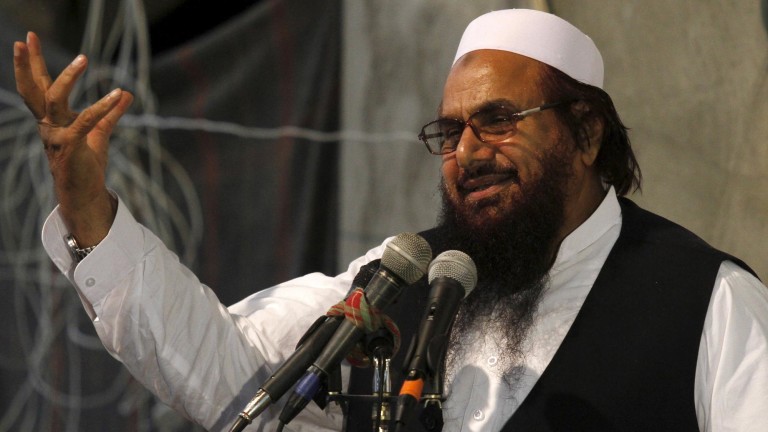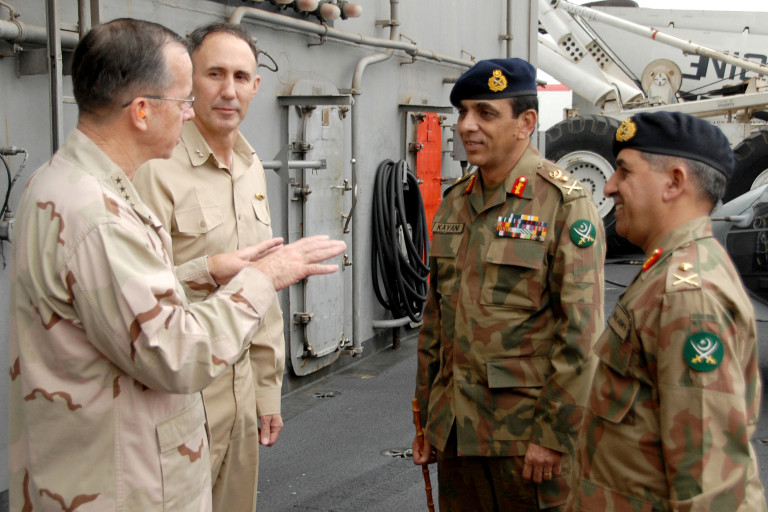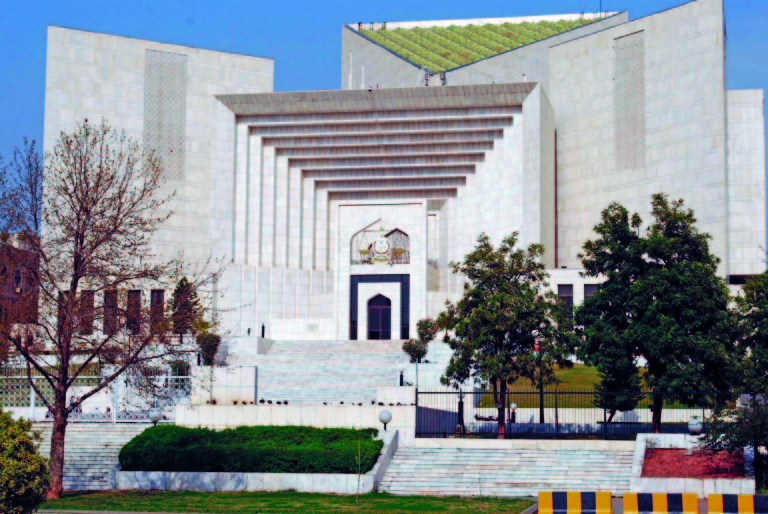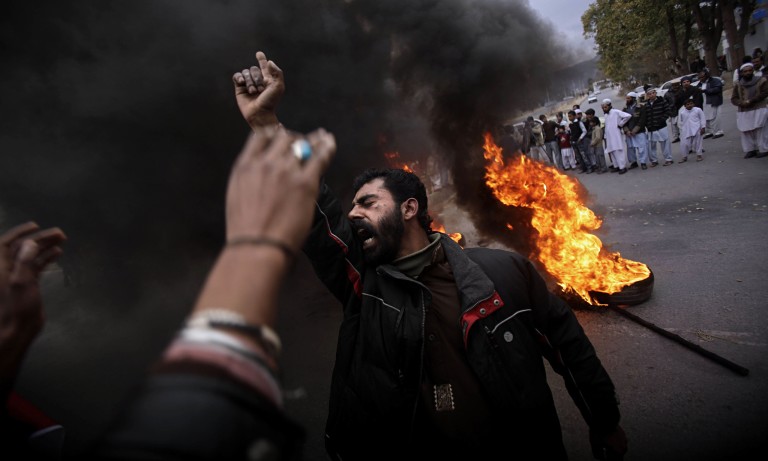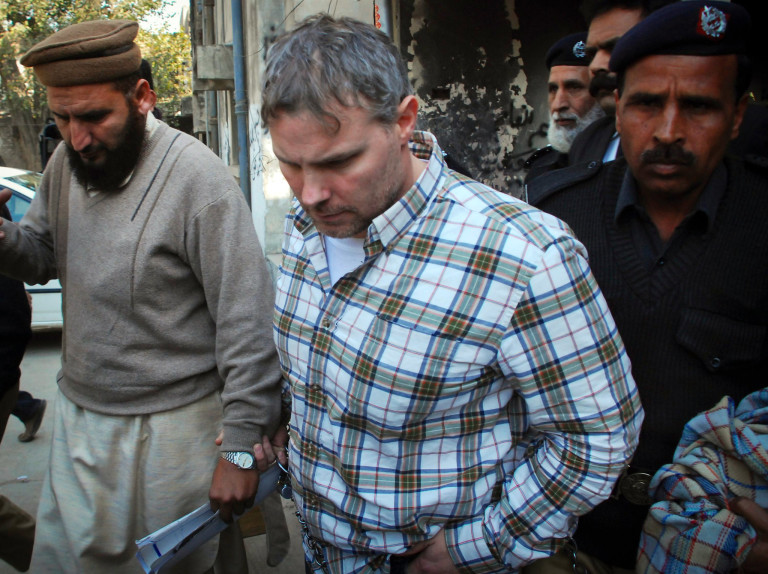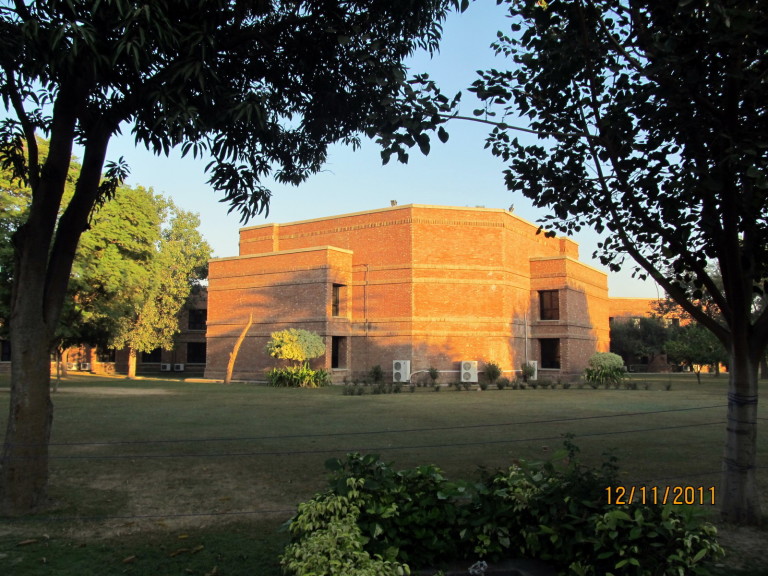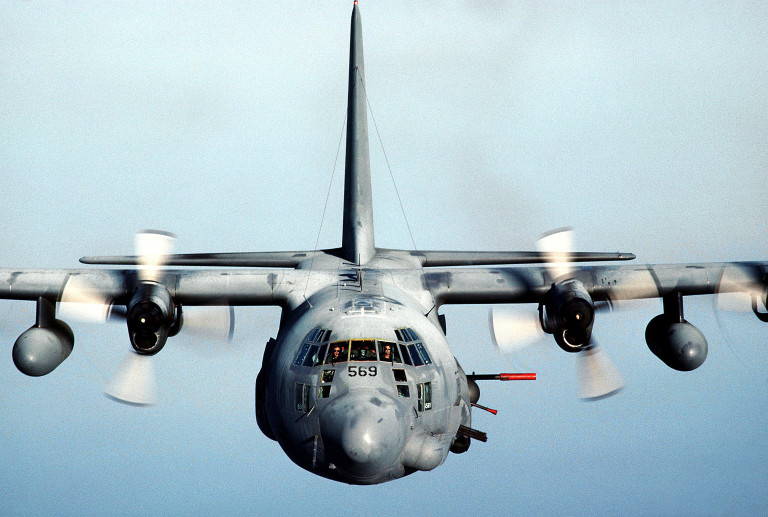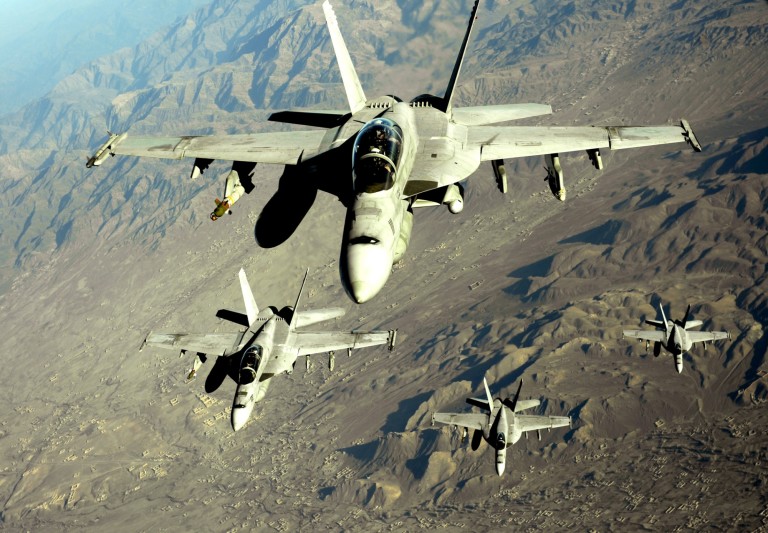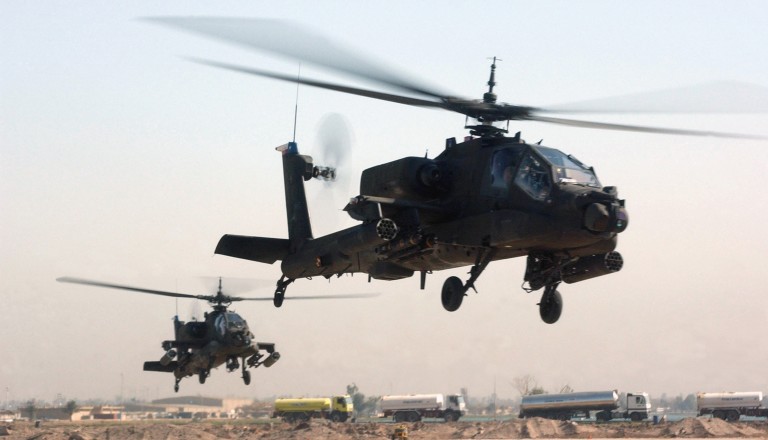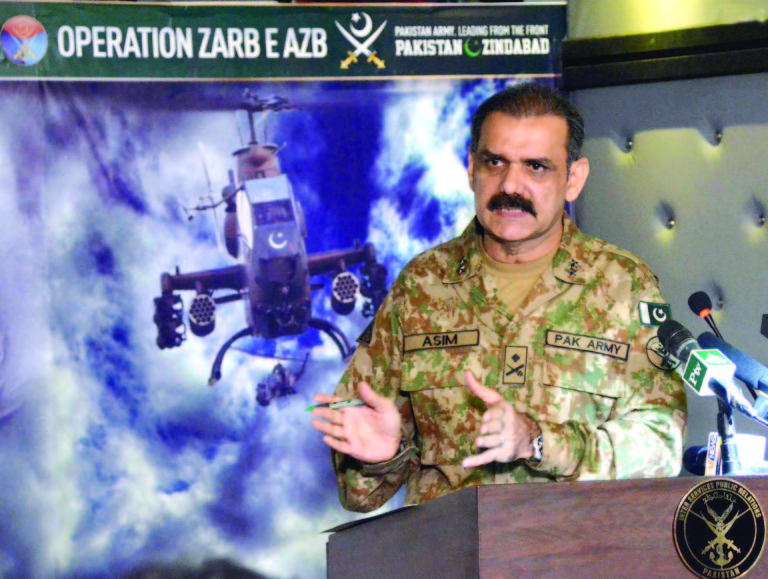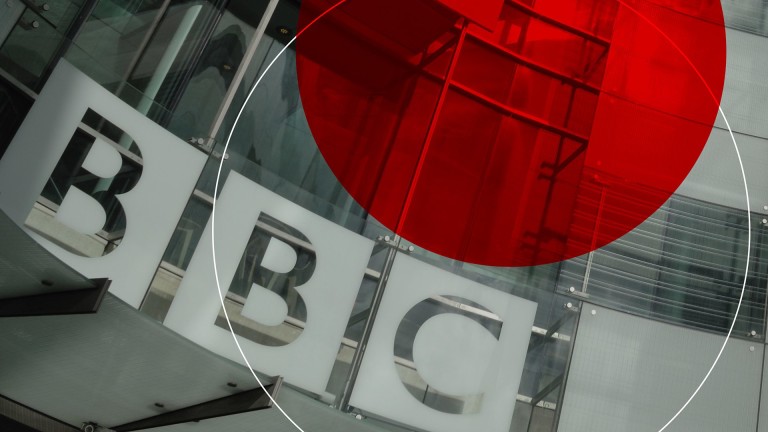Moeed Pirzada | Daily Times |
Did General Pasha and his colleagues ever realise that their mid-20th century organisation, built on ‘paradigms of control and fear’ and buttressed through old fashioned notions of ‘national security’ and ‘patriotism’ needs a strategic rethink to face the challenges of a new interactive age?
Almost all western newspaper reports that mention ISI start with the laudatory buzz words “Pakistan’s all powerful spy agency”. This is precisely the mindset that the new DG ISI needs to avoid from day one. The unfortunate reality is that today ISI might be powerful or frightening for helpless journalists, citizens and taxpayers of Pakistan (who should, in the first place, if Pakistan was a normal country, be expected to be protected by their intelligence agencies). But in terms of protecting its own turf and vital national interests, ISI today is clearly the bruised, fatigued boxer that is sweating and panting on the ropes, wondering what went wrong. This is the unflattering but hugely realistic image that the new DG ISI should have on the plasma screen of his mind as he sets out to tackle the challenges faced by his agency.
General Zaheerul Islam’s predecessor was a hardworking, honest and conscientious officer, but during his three years at the helm, the agency encountered the worst crisis of its history. It suffered a series of embarrassments, was humiliated and out manoeuvred by rival intelligence organisations, was confronted by an unprecedented demonisation across the world and, to make matters worse, it now faces a crisis of legitimacy amongst the better educated and more intellectually vigorous sections of Pakistani society. General Pasha may like to thank internationally acclaimed author, Ahmed Rashid, who argues in his latest book, Pakistan On the Brink that President Obama had approved a plan by Leon Panetta to create a Pakistan-specific CIA hidden from the eyes of ISI.
Thus one can exonerate the traditional soldier, General Pasha, for the challenge to contain this global age blitzkrieg was enormous and certainly beyond the capacity of his rusty organisation. Nevertheless one wonders: did General Pasha and his colleagues ever realise that their mid-20th century organisation, built on ‘paradigms of control and fear’ and buttressed through old fashioned notions of ‘national security’ and ‘patriotism’ needs a strategic rethink to face the challenges of a new interactive age? If they did, some change would have been seen in the behaviour of the lower to mid-ranking officials who continue to employ ‘fear’ as a tool to deal with the media and civil society, leading to an increasing wedge between the ISI and the intelligentsia of its own country.
I would pick up four events or developments to help explain the kind of multidimensional challenges the ISI faces today. First, in 2009, with massive penetration and footprint of foreign intelligence agencies across Pakistan, ISI for the first time lost its monopoly on gathering and regulation of information from within Pakistan. To Pakistan’s spymasters, who had failed in their political battle to prevent CIA’s penetration, this loss of control might have been worrying to begin with. And the infamous Raymond Davis affair may have concentrated their minds on the extent and risks of this penetration, but its true nature, size, depth, scope and significance probably only dawned upon them when the role of Dr Shakeel Afridi and his polio teams in the CIA operation to discover Osama bin Laden came to the surface. Add to this the twist that Congressman Dana Rohrabacher wants Dr Afridi to be given US citizenship and awarded for his services to the international community, and you get to develop a sense of the challenge ISI faces in a globalised interactive world.
Second, the discovery and killing of Osama bin Laden by the CIA in an Abbottabad compound fully exposed the capacity issues of the ISI, however we may put it (depending upon what is known from open sources as to what happened). For if we believe the insinuations of the US media that the ISI was keeping OBL through some ‘wheels within wheels’ arrangement for a trade-off later, then clearly it failed to protect its ‘prized asset’ from the competing intelligence, CIA, that effectively penetrated and manoeuvred within ISI’s home turf. Unfortunately, this damning verdict on ISI’s capacity and competence stays the same even if we turn this story around, faithfully believing ISI’s version that it had no inkling of OBL or his colourful harem of wives, because in that case it not only failed to detect the ‘international public enemy number one’, but also had no idea what the CIA was doing (with a massive operation, that included hiring buildings and running polio teams) on its turf under its very nose.
Third, the successful raid by a mysterious group of ‘Taliban’ on Pakistan Navy’s Mehran base, in May of 2011, leading to the destruction of strategically vital surveillance planes, P-3C Orion, can only be analysed as a spectacular failure on the part of the ISI in an area that constitutes its primary responsibility, i.e. inter-services intelligence. In fact, those forces who planned this attack through the Taliban, apart from the destruction of surveillance planes, must have desired to send a message to Pakistanis and the world at large how vulnerable the defence and intelligence structures are in a country loaded with nuclear weapons. Has ISI done some soul searching on the real scope of this disaster? If it did, we are not aware of it.
Four, the arrest by FBI and later plea bargaining of the Kashmiri activist, Dr. Ghulam Nabi Fai in August 2011 raises interesting questions about ISI’s inability to understand the changing international scenario and its own position in it. Why for instance, despite mounting fault lines, clash of interests and frictions with the US intelligence community, the ISI never figured out that it needed to tie up its loose ends? Perhaps even more importantly, is it getting the right legal, technical and strategic advice as it initiates, conducts and sustains various intelligence activities around the world? Ironically, in the case of Dr. Fai, the ISI appeared shocked as if it was betrayed by erstwhile friends; though as a smart intelligence agency with its eye on the changing political dynamics inside the US and its regional posture in South Asia, it should have expected this turn of events many years in advance and prepared for it.
Four, the arrest by FBI and later plea bargaining of the Kashmiri activist, Dr. Ghulam Nabi Fai in August 2011 raises interesting questions about ISI’s inability to understand the changing international scenario and its own position in it. Why for instance, despite mounting fault lines, clash of interests and frictions with the US intelligence community, the ISI never figured out that it needed to tie up its loose ends? Perhaps even more importantly, is it getting the right legal, technical and strategic advice as it initiates, conducts and sustains various intelligence activities around the world? Ironically, in the case of Dr. Fai, the ISI appeared shocked as if it was betrayed by erstwhile friends; though as a smart intelligence agency with its eye on the changing political dynamics inside the US and its regional posture in South Asia, it should have expected this turn of events many years in advance and prepared for it.
In addition to these purely technical issues of capacity and competence, ISI today is also facing a growing crisis of legitimacy amongst the Pakistani intelligentsia. In one briefing after the OBL fiasco, a senior official desperately cried out that ISI was the only agency in the world that was not only being demonised by the foreign press but was also being denigrated by its own media. He was right; ISI is being squeezed hard by a combination of interests on its domestic front which, if it continues, is bound to further reduce its capacity to serve as a key national institution. But the million dollar question is: does ISI have any capacity to deal with these new kinds of challenges? And the answer is: this is what the new DG’s challenge is and should be. First, ISI needs an internal debate to determine if it wants to see itself as a modern intelligence organisation or would like to continue as a Brezhnev era operational agency that relies upon ‘fear and muscle’ for achieving its objectives?
Second, if it yearns to be a modern age intelligence agency then it must take immediate steps to reduce its widening gulf with the Pakistani politicians, media and intelligentsia. It can initiate this process by moving its own well-thought out proposal to close the ‘political cell’. Along with this, it has to ensure (even if it is not directly responsible) through its new conduct that stories like the murder of Saleem Shahzad, the abduction of Umar Cheema and the roughing up of politicians like Kabir Wasti cannot be connected to it by any stretch of the imagination.
Third, and perhaps the most important: it must take steps to increase efficiency and reduce its visibility. That won’t be possible unless it improves its human resource by refusing to be used as a ‘parking lot’ by superseded officers, and launches a massive programme of education and retraining. It may start by restructuring its training institutes that need to hire expertise in the areas of IT, law, public policy, international relations, psychology, cyberspace and the media. It is time for the ISI to wake up and smell the coffee. Dinosaurs don’t survive, tigers do.
The writer is the Director World Affairs of PTV. He is also an anchor-person and political analyst and can be reached at director@media-policy.com
